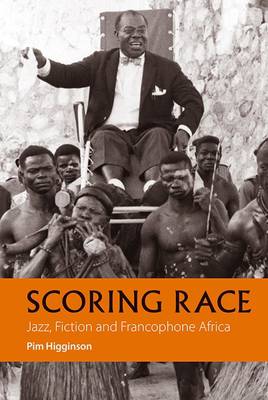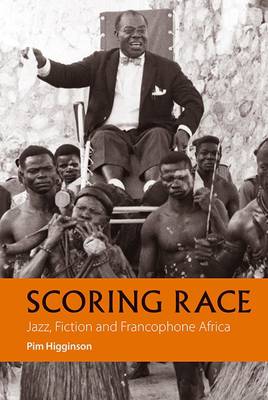
- Retrait gratuit dans votre magasin Club
- 7.000.000 titres dans notre catalogue
- Payer en toute sécurité
- Toujours un magasin près de chez vous
- Retrait gratuit dans votre magasin Club
- 7.000.000 titres dans notre catalogue
- Payer en toute sécurité
- Toujours un magasin près de chez vous
Description
Reveals the importance of the jazz craze in France between the two world wars and the French construction of jazz as a "black music" - an exoticization which had wide-reaching effects on the artistic output of the African diaspora and on contemporary perceptions of black writers, musicians and film makers. What are the cultural implications of Louis Armstrong's 1960 visit to Africa? Why are so many postcolonial novels in French fascinated with jazz? In defining jazz as "black music", France's "jazzophilia" has had wide-reaching effects on contemporary perceptions of the artistic and political efficacy of black writers, musicians, and their aesthetic productions. Scoring Race explores how jazz masters Louis Armstrong, Duke Ellington, Charlie Parker, and John Coltrane became touchstones for claims to African authorship and aesthetic subjectivity across the long twentieth century.
The book focuses on how this naturalization of black musicality occurred and its impact on Francophone African writers and filmmakers for whom the idea of their own essential musicality represented an epistemological obstacle. Despite this obstacle, because of jazz's profound importance to diaspora aesthetics, as well as its crucial role in the French imaginary, many African writers have chosen to make it a structuring principle of their literary projects.
In Scoring Race Pim Higginson draws on race theory, aesthetics, cultural studies, musicology, and postcolonial studies to examine the convergence of aesthetics and race in Western thought and to explore its impact on Francophone African literature. How and why, Pim Higginson asks, did these writers and filmmakers approach jazz and its participation in and formalization of the "racial score"? To what extent did they reproduce the terms of their own systematic expulsion into music and to what extent, in their impossible demand for writing(or film-making), did they arrive at tactical means of working through, around, or beyond the strictures of their assumed musicality? Pim Higginson is Professor of Global French Studies at the University of New Mexico, Albuquerque.
The book focuses on how this naturalization of black musicality occurred and its impact on Francophone African writers and filmmakers for whom the idea of their own essential musicality represented an epistemological obstacle. Despite this obstacle, because of jazz's profound importance to diaspora aesthetics, as well as its crucial role in the French imaginary, many African writers have chosen to make it a structuring principle of their literary projects.
In Scoring Race Pim Higginson draws on race theory, aesthetics, cultural studies, musicology, and postcolonial studies to examine the convergence of aesthetics and race in Western thought and to explore its impact on Francophone African literature. How and why, Pim Higginson asks, did these writers and filmmakers approach jazz and its participation in and formalization of the "racial score"? To what extent did they reproduce the terms of their own systematic expulsion into music and to what extent, in their impossible demand for writing(or film-making), did they arrive at tactical means of working through, around, or beyond the strictures of their assumed musicality? Pim Higginson is Professor of Global French Studies at the University of New Mexico, Albuquerque.
Spécifications
Parties prenantes
- Auteur(s) :
- Editeur:
Contenu
- Nombre de pages :
- 247
- Langue:
- Anglais
- Collection :
- Tome:
- n° 3
Caractéristiques
- EAN:
- 9781847011558
- Date de parution :
- 16-06-17
- Format:
- Livre relié
- Format numérique:
- Genaaid
- Dimensions :
- 236 mm x 157 mm
- Poids :
- 635 g







